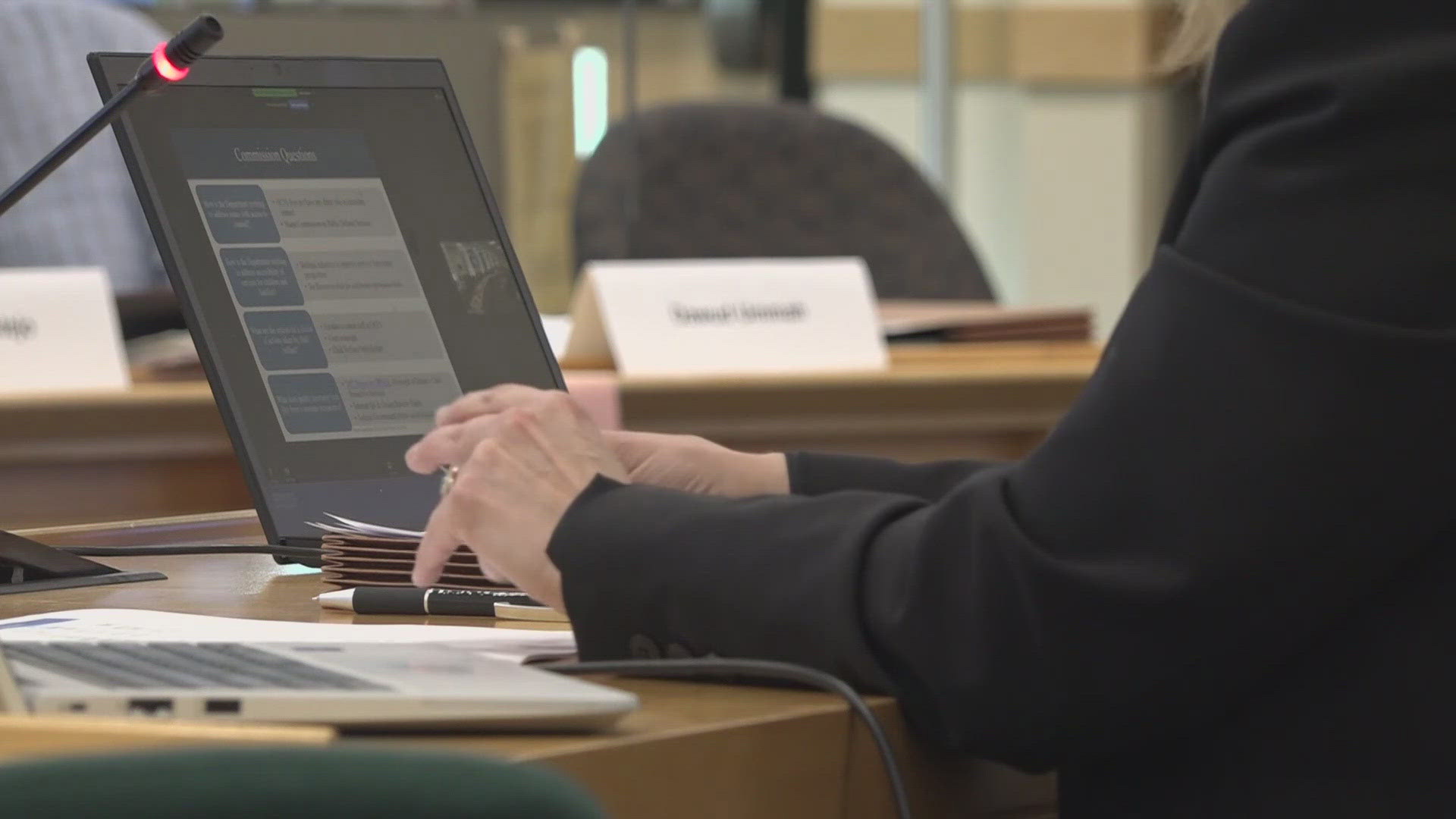AUGUSTA, Maine — A hearing to probe into the Maine Department of Health and Human Services' internal operations, processes, and available services was held by the Blue Ribbon Commission on Wednesday.
Representatives and directors from both DHHS and from the Office of Program Evaluation and Government were present at the hearing to explain the department's processes and answer questions that the commission had.
The department has been under intense scrutiny in the recent years. The hearing comes after the DHHS received a number of recommendations for improvement from the state's Government Oversight Committee last month.
"It is designed to reach bipartisan, non-partisan conclusion," Peter Schleck said, explaining the role of the GOC.
The recommendations provided by the GOC addressed ways to overcome challenges that the department faces like case overload, lack of resources, and managerial support.
"The department can do everything right and there could be a tragic outcome, and the department can have some challenges. But there has never been a shortage, with rare exception in the work that I've seen, has there been a case where someone wasn't responding in the way that they should," Schleck said. "There is effort. The issues that come out of this report are about [needing] more people, we need more supports, we need more services. We need all the things you already know."
Speaking specifically about child protective services, Schleck said the service operates on a complaint-based system, which he said explains why the department handles the worst cases.
To make the recommendations, the GOC conducted a two-year investigation into the DHHS. Although many of the suggestions for improvements the GOC made were categorized as operational improvements, the investigation uncovered some incidents where the department allegedly poorly handled family cases.
Representatives from the GOC said several families and staff members came forward giving testimonies about their poor experiences with the department. Sen. Jill Duson said the complaints can be used as tools for growth.
"When a family or someone in the system complains to the system-that's an opportunity for us to see where we are missing the mark," Duson said.
As someone who relied on the Department of Health and Human Services system in the past, Duson said it's critical for oversight committees to ensure people impacted by DHHS have a voice.
"When a family or someone in the system complains to the system, that's an opportunity for us to see where we are missing the mark," Duson said.
State representatives like Kathy Javner say they want to see improvement from the department as a whole.
"I want to see things trending better. I want the caseloads to go down. I want the number of children in custody to go down. I want families to be whole and healthy," Javner said.
During the hearing, the committee asked several questions focused in on family services.
With thousands of children in the state's care and limited caseworkers, the DHHS's Office of Child and Family Services Director Bobbi Johnson said child protective services has become a default system.
"We get a lot of reports at child protective services," she said.
Johnson said the department is looking at how caseworkers can better connect people to the right resources before child protective services is called. She also said the department is working to better align its staffing with its child protective services case workload and call volume needs.
"We receive about 50,000 calls to that hotline every year. Some of those are not child abuse and neglect related. Some of those are information and referral," Johnson said.
Johnson explained that only around 10,000 to 12,000 of those calls lead to investigations.
Maine Developmental Disabilities Council Executive Director Nancy Cronin said families often also get caught in the department's system and separated as a result of the department's lack of resources. Cronin said people may be seeking multiple services that all fall under the DHHS, whether it relates to food stamps and SNAP benefits, housing, mental health services, or financial assistance from the state.
Cronin said while people wait on long waitlists to receive the services they need, their situations and circumstances often worsen, and at no fault of their own, the worsening situation often becomes a safety concern for their children.
Cronin said as issues exacerbate, the likelihood of a family losing custody of their child or children increases when situations become extreme and threaten the safety of minors, despite the parent's efforts to receive help and inability to have their needs met by DHHS in a reasonable timeframe.
"You're in a horrible spot in which the child's not getting their needs met, and the families have no options, and the kids have no options," Cronin said. "And right now, frankly, the system often has no options."
Advocates like Allina Diaz, who is a community organizer at Maine Equal Justice who sat on the commission panel, said many families who need support from the DHHS are hesitant to connect.
"They're afraid of that kind of surveillance coming in, and instead of helping, tearing a family apart," Diaz said.
Representatives on the Blue Ribbon Commission said they hope to issue a report to the Legislature next session.

